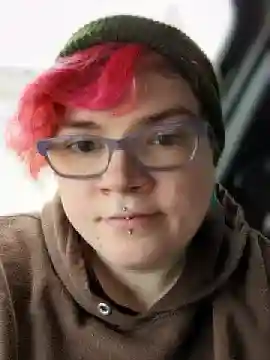I’m autistic. While I didn’t receive an official diagnosis until my late 20s, I look back on my childhood and teenage years and can see how obvious it was. I was a certified “weird kid” with anxiety issues who was prone to panic attacks. While I don’t believe having a diagnosis is always necessary, it’s personally helped me to form a better understanding of myself and how to approach situations in a more positive way. Embracing this part of me has also led to a deeper connection with horror as a genre and a special interest. (Special interests are akin to an intense hobby, but hold deep personal significance for autistic individuals.)
I spoke with several other autistic horror buffs (who I will be referring to by initials for privacy reasons) and asked why it resonates with them. I was interested to see if there was any commonality between us. The general consensus across the board is that, unlike other genres, horror has clearly identifiable rules of engagement. You can understand the archetypes and tropes which explain a character’s motivations and responses. Socialization has tons of unspoken rules that can be extremely difficult or confusing to pick up on as an autistic person. “Am I making enough eye contact? Are they being sarcastic?” It’s quite frankly frustrating, and at times, exhausting. With a movie or book, you can break down these cues to form a clearer image. “For my need to understand people, horror is a gateway into the collective subconscious that requires less in-person immersion to arrive at the same points,” S told me.
It’s also the first place many of us saw ourselves on screen. I’ve written about this before, and it still holds true. Tons of horror media is told from the perspective of outcasts; It’s full of underdogs, nerds and non-conventional protagonists who don’t fit the mainstream idea of a hero. They make bad decisions and act like real people as opposed to idealized action stars. As Z put it, “...horror in a lot of ways, hero or villain, gives a lot of strength to people who are different. When I saw the Faculty as a kid, one character I really related to was Casey... he's the nerd, bullied, the outcast. The movie never says he's autistic, but it's easy to transplant it onto him. Casey is also compassionate, loyal, and brave, and he's the one who saves the day while the film still LETS him be flawed and imperfect.”
These building blocks of subgenre and tropes can be put together in countless combinations, says C: "...slashers, monster movies, found footage, all these little entries in an encyclopedia of expectation that makes playing in their various sandboxes all the more rewarding." I'm a huge fan of body horror, but it's not for everyone! The variety within even one subgenre can be extremely diverse, which is something I love about the horror community.
This idea of unlikely protagonists also applies to monsters, who often have stories that focus on misunderstandings, in addition to the fear of the unknown and unusual. R relates to this a lot, saying “...just because they were Strange or Different or Scary, didn't mean I wanted them to be something dangerous or hated. That felt like doing a disservice to them, especially as someone who felt that I had been in that sort of position for all of my life.” Take Guillermo Del Toro’s The Shape of Water, which tells of a romance between a mute woman and a fish man, two unlikely protagonists whose treatment by other characters cements their status as “other.” Frankenstein is always stressed to be a tragic tale, the monster a victim of discrimination and mob mentality. It is deeply upsetting to see him treated so horribly, and many of us, neurodiverse or not, are affected seeing these kind of characters.
R continued; “It always felt better to me to have these aliens/monsters/etc. be beings that, while very unique, were no less deserving of love, compassion, or companionship than anyone else. That they could still have real, friendly relationships with others, even if extra work would need to be done on the part of both individuals in order to sort of 'translate' each other.”
Horror is a very dichotomous industry. It regularly breaks box office records, bringing in billions of dollars, yet some still see it as lesser, with critics suggesting anyone who enjoys films full of gore are “freaks.” Many wear this as a badge of honour. The desire to separate horror fans from the "normal" populace strikes a chord with me. I've struggled with self-doubt when people I know have voiced their discomfort with horror, worried that it makes me a bad person for liking it. As time goes by I've realized how silly this is. We are a diverse community, all connecting through an often misunderstood genre. I think this gives an inherent layer of compassion and introspectiveness, one that adds to the comfort and ease of interacting with others within the horror world and makes me proud to be a part of this space. The friendships I have fostered here have been extremely impactful and rewarding and make me excited for the future.
I'd like to end with a quote from C that really resonated with me:
"We can build anything we can imagine, as long as we know where the edges are. Horror is the best at showing its edges."
Get The New Annotated Frankenstein at Bookshop or Amazon

About the author
Lor Gislason is a horror writer from Vancouver Island who focuses on body horror and film analysis from an autistic perspective. Their work has appeared in Horror Obsessive, Hear Us Scream, and Lost in Cult. Their first novella, Inside Out, is available from Darklit Press.








